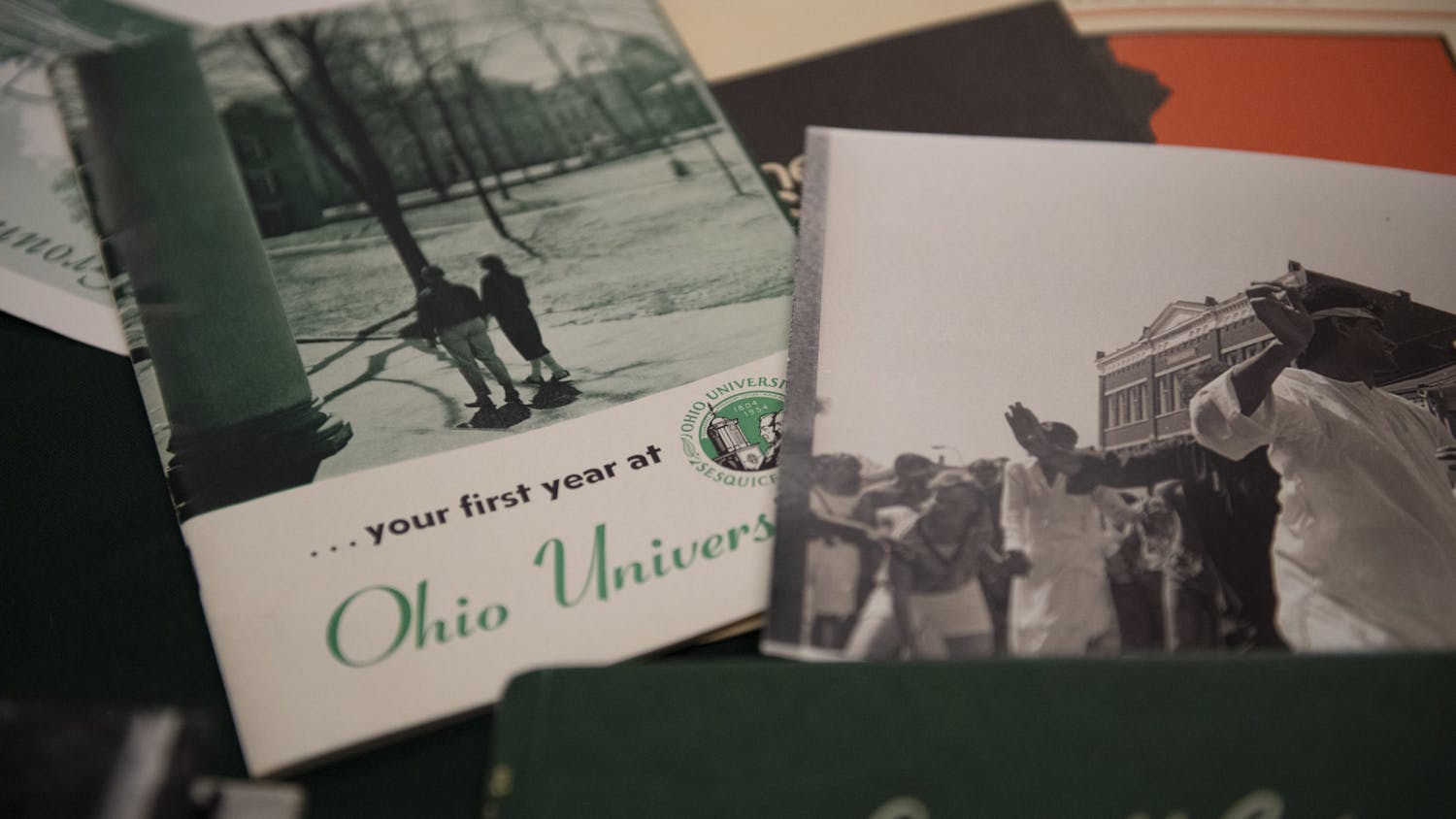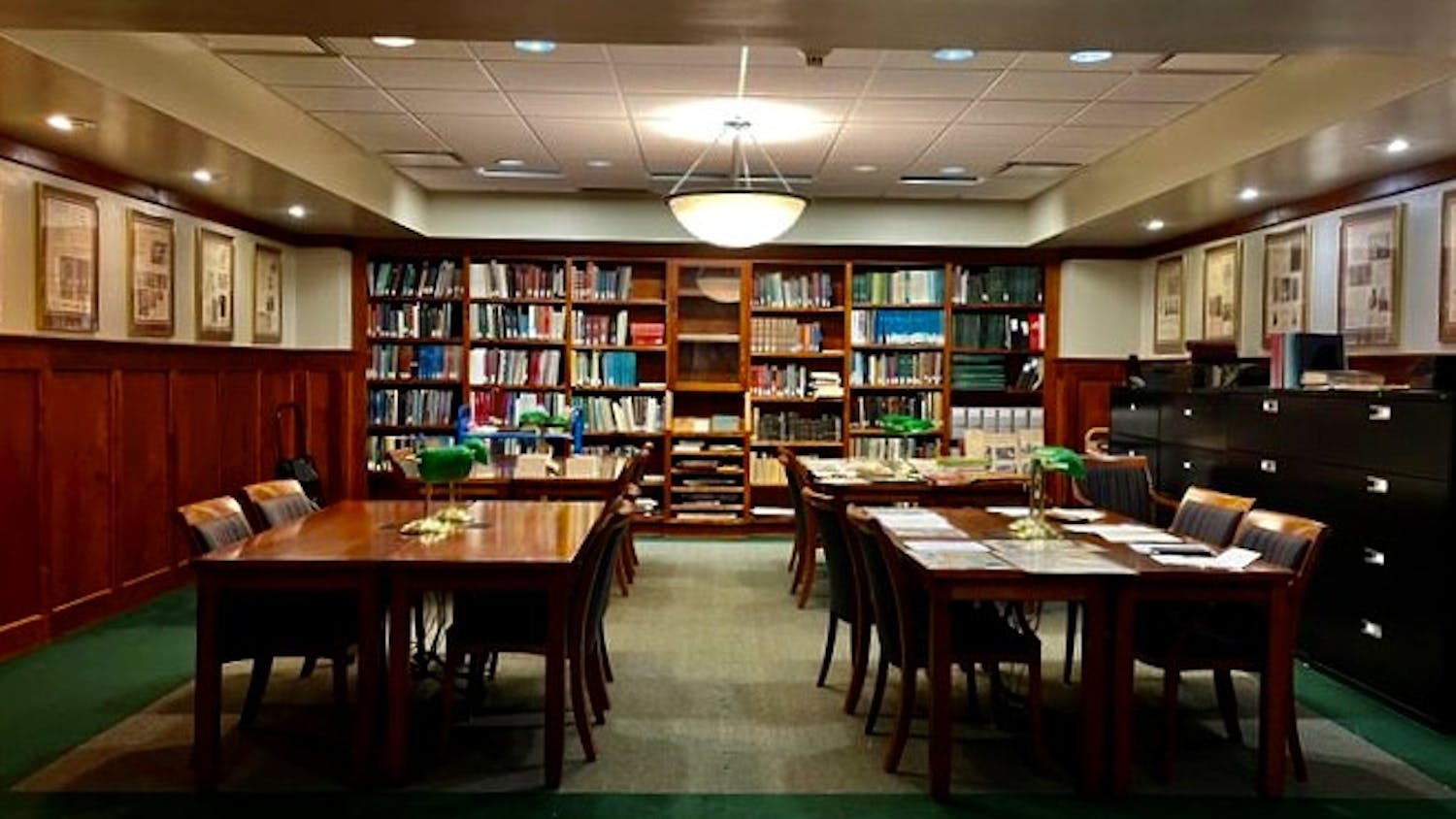In the theater world, the feud between “techies” and actors is often a fierce one. At Ohio University, though, getting a theater degree requires getting familiar with a bit of both.
Students in the OU School of Theater must participate in several hours of practicum each semester — depending on their degree — to graduate. Practicum hours come from being a part of a production, taking on either a technical or performance role.
In the first year of the program, practicum involves participation in productions through technical and management assignments. Sophomores, juniors and seniors have the opportunity to participate through performing, serving as a light or sound technician, or working in management, according to the School of Theater’s website.
Since there are few roles each semester for actors, many spend a majority of their practicum hours on the technical end of theater. That provides an opportunity for actors to learn different aspects of technical productions, said Dan Baker, a junior studying playwriting and production design and technology.
“No matter your discipline in theater, it’s important to understand the nuances of the other areas,” Baker said. “You don’t necessarily have to enjoy doing them, and sometimes you won’t, but training in areas outside of your main discipline helps nurture a healthy respect for the other areas.”
This technical experience is something all actors should experience, said Ries Yuellig, a sophomore studying theater performance.
“It’s important to know all of what happens in theater besides just what you do,” Yuellig said. “It’s good to know so you can appreciate the crew and understand all that they do.”
The practicum experience also allows students in the School of Theater to be a part of each production in some way, he said.
“I was on craft crew for Mr. Marmalade; I helped make the costumes, and I got to see them on stage,” Yuellig said. “It was a recognizable thing in the show, though I wasn’t in it. It’s good to see that you can add a lot to the show even behind the scenes.”
And actors aren’t the only ones required to learn every trick of the theater trade. Technical theater students are required to take acting classes, which Jeremy Borbon, a graduate student studying technical direction, said provides students with tools they need to succeed.
“It’s important for individuals in our career field to have a broad general understanding of the production from beginning to end,” Borbon said.
The skills theater students acquire in other areas allow them to be more knowledgeable while performing other roles in a productiontion, Baker said.
“A playwright who understands how actors think will probably write more accessible characters,” he said. “An actor who understands lighting design will know where on stage is being lit, so they won’t be in the dark.”
Practicum can also allow students to gain experience in new areas of theater that interest them, and for some, it has helped them decide a career path.
“In the last year, I have had the awesome opportunity to sound design three lab shows at the School of Theater, and assistant sound design on two main stages,” Baker said. “It has been a wonderful experience and has helped shape an idea of what I’d like to do as a career after graduation.”
Besides simply learning the tricks of the trade, Borbon said practicum also allows students from different areas to get to know each other better than if they would have stayed strictly involved in their own specialization.
“Certainly not that there is any inherent dislike between the two, but having actors work in the scene shop gives everyone in the theater department the chance to socialize, which may not happen outside of that environment,” he said.
ks574510@ohiou.edu






